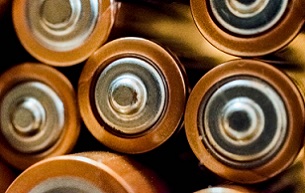 Lithium batteries. Photo by Hilary Halliwell from free photo website Pexels
Lithium batteries. Photo by Hilary Halliwell from free photo website Pexels
 An AvSax fire mitigation bag for portable electronic devices
An AvSax fire mitigation bag for portable electronic devices
Airline companies now insist that passengers must NEVER put spare lithium-ion batteries in aircraft holds and instead take them into the cabin.
The reason is that if lithium-ion batteries catch fire they burn with such intense heat that electronic firefighting systems in plane holds would not be able to stop them from spreading.
If the batteries are in the cabin and start to overheat or catch fire then the crew can deal with the problem and many airlines now have award-winning AvSax battery fire containment bags on board. Lithium batteries are used to power just about every electronic gadget from mobile phones and e-cigarettes to tablets and laptops and all will fit into the AvSax fire mitigation bag. These electronic gadgets are known as portable electronic devices – or PEDs for short.
The rules in both the USA and UK says it’s best to carry all your electronic gadgets into the cabin with you but if you do put them in luggage in the hold then you need to make sure they are completely switched off so there is no chance at all of them overheating and catching fire.
In the USA the Federal Aviation Administration states: “Devices containing lithium metal batteries or lithium-ion batteries, including – but not limited to – smartphones, tablets, cameras and laptops, should be kept in carry-on baggage. If these devices are packed in checked baggage they should be turned completely off, protected from accidental activation and packed so they are protected from damage.
“Spare (uninstalled) lithium metal batteries and lithium-ion batteries, electronic cigarettes and vaping devices are prohibited in checked baggage. They must be carried with the passenger in carry-on baggage. Smoke and fire incidents involving lithium batteries can be mitigated by the cabin crew and passengers inside the aircraft cabin.
“If carry-on baggage is checked at the gate or planeside, spare lithium batteries, electronic cigarettes and vaping devices must be removed from the baggage and kept with the passenger in the aircraft cabin. Even in carry-on baggage, these items should be protected from damage, accidental activation and short circuits. Battery terminals should be protected by manufacturer’s packaging or covered with tape and placed in separate bags to prevent short circuits.
“Damaged, defective or recalled lithium batteries must not be carried in carry-on or checked baggage if they are likely to be a safety concern by overheating or catching on fire.”
In the UK the Civil Aviation Authority has strict rules on spare batteries, saying they must be taken into the passenger cabin: “No more than two individually protected spare batteries per person may be carried. Each lithium-ion cell or battery must be individually protected so as to prevent short circuits (by placement in original retail packaging or by otherwise insulating terminals, e.g. by taping over exposed terminals or placing each battery in a separate plastic bag or protective pouch).”
The CAA says portable electronic devices such as mobile phones, laptops and cameras “should be carried in carry-on baggage.”
But it does not rule out putting them in the luggage hold by adding: “If a device is carried in checked baggage, measures must be taken to prevent unintentional activation and to protect from damage. The device must be completely switched off (not in sleep or hibernation mode).”
The CAA warns: “Lithium batteries are very safe but because of their high energy, if they are not treated with care or if they are abused or have a manufacturing fault, they can catch fire. Batteries have been the cause of a number of fires on board aircraft and during ground handling.
“Poorly manufactured, faulty and misused lithium batteries and those which have not been protected against short circuit can experience thermal runaway. This results in them getting so hot they can catch fire, explode and ignite other nearby batteries. If that was to happen on the flight deck it could significantly disrupt the operation of the aircraft and cause serious injury to flight crew. Similarly, if such an event occurred in the passenger cabin it could cause serious injury to a passenger or crew member.”
AvSax – the world’s best-selling lithium battery fire containment bag for PEDs on aircraft - are now on more than 15,373 aircraft operated by 80 airline companies. They have been used 33 times to deal with emergencies since the start of 2017 and every time they have been deployed the aircraft has been able to complete its journey safely with no need to divert or make an emergency landing. Diversions can be very costly to the airline company and can even run into hundreds of thousands of pounds.
AvSax won the prestigious Queen’s Award for Enterprise in the UK in 2018.